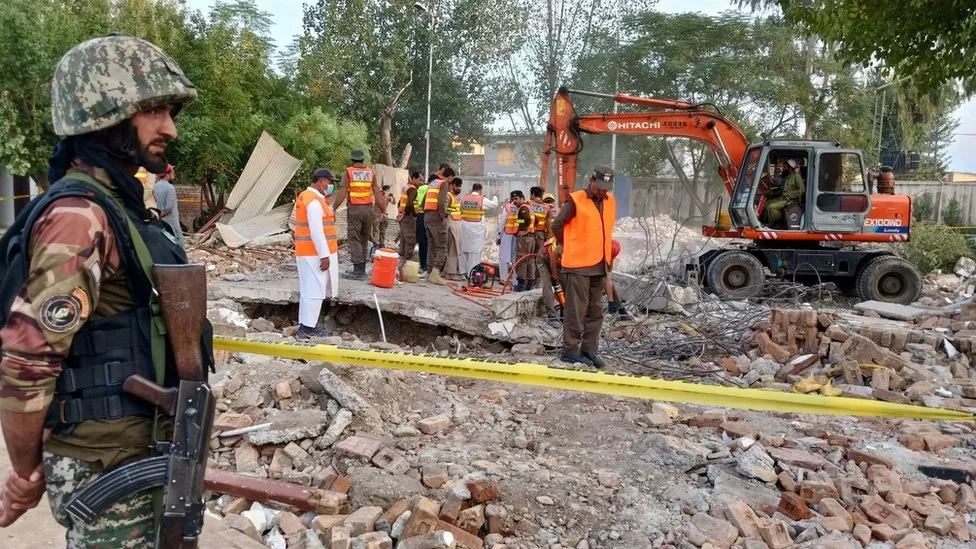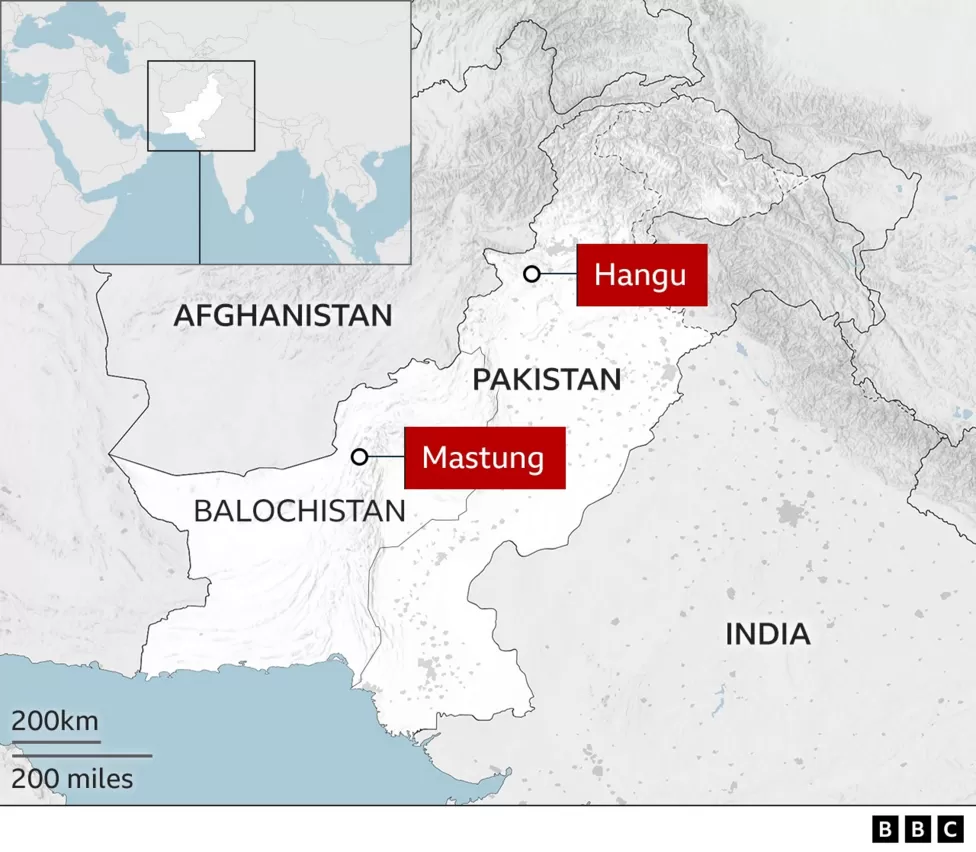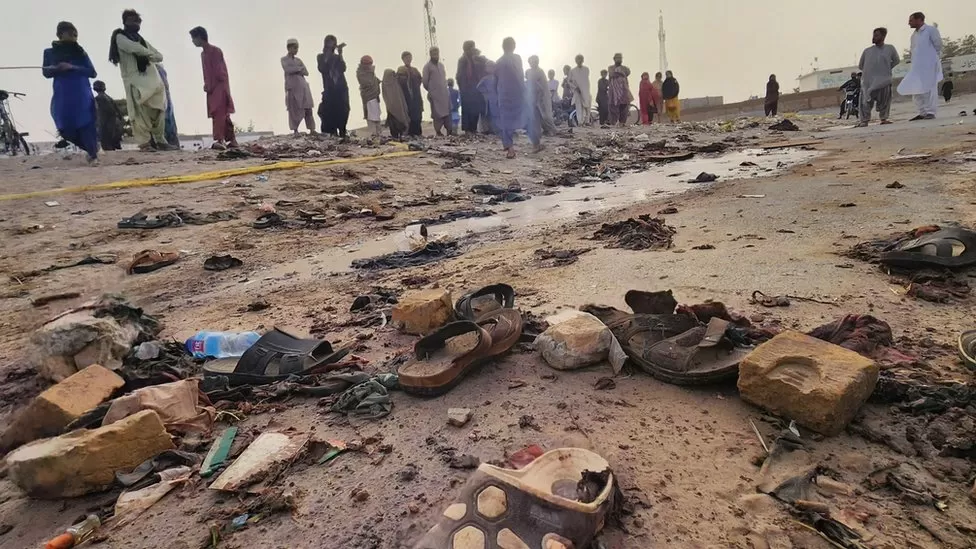Over 50 individuals lost their lives and many were injured in a suicide bombing in Pakistan, according to law enforcement.
The explosion took place close to a mosque in the southwestern region of Balochistan on Friday, during celebrations commemorating the birth of Prophet Muhammad.
Balochistan authorities have announced a state of emergency, and the perpetrators behind the attack remain unidentified.
In a separate incident, another explosion at a mosque near Peshawar City in the Khyber Pakhtunkhwa province claimed the lives of at least five individuals.
Videos from the scene in Mastung, a city in Baloch, depicted emergency responders and locals assisting the injured.
Saifullah, a local journalist, described the aftermath: “Bodies were piled upon each other.” He continued, “The crowd was anticipating the start of a celebratory march. I was nearby when the explosion occurred,” revealing that he lost 10 to 12 family members in the blast.
Haibullah, a 22-year-old survivor, recounted the moments leading up to the explosion from his hospital bed in Quetta, Balochistan’s capital. “The stage was set. The bomb detonated shortly after I got there. The force of the blast knocked everyone down. My foot was injured,” he shared.
Sarfaraz Ahmed Sasoli, who was providing security for the event, mentioned that the suicide bomber approached as religious leaders were assembling. “Many from our community have relatives who were injured,” he added.
The influx of casualties overwhelmed local medical facilities, prompting authorities to request blood donations through social media.
Abdul Khaliq Sheikh, Balochistan’s top police official, verified that the incident was a suicide attack, noting that a high-ranking police officer lost his life trying to thwart the assailant.
Pakistan’s Interior Minister, Sarfraz Bugti, denounced the explosion as a “heinous act” and condemned the acts of terror in both regions.

In Hangu, the army sealed the blast site as rescuers combed through the debris
Meanwhile, a representative for the Khyber Pakhtunkhwa police reported that they intercepted two suicide bombers and a vehicle loaded with explosives.
One bomber was stopped at the entrance when he attempted to enter the mosque situated within a police compound in Hangu, he added.
While at least five individuals lost their lives, there are concerns that more might be trapped beneath the debris due to the roof’s collapse.
Balochistan, which shares its borders with Afghanistan and Iran, is Pakistan’s most expansive province. It has been a frequent target for militants, including the Tehrik-e Taliban Pakistan (TTP) or Pakistani Taliban, and the Islamic State group.
Earlier in the month, an explosion in the same district injured at least 11 people, including a notable Muslim leader.
However, the TTP denied any involvement in the recent explosion, stating that such an act contradicts their principles. They also strongly condemned the Khyber Pakhtunkhwa attack, emphasizing that “mosques, schools, and public gatherings are not within our target range.”
Murtaza Solangi, Pakistan’s interim Information Minister, commented that the terrorists’ decision to strike during the celebration of the Prophet Muhammad’s birth and the Friday prayer clearly indicates their detachment from any religious or moral values.
Pakistan commemorates the Prophet Muhammad’s birthday on the 12th day of the third month in the Islamic calendar. The day is marked as a public holiday, commencing with gun salutes in Islamabad and other provincial capitals, and public areas are adorned with vibrant lights.
Most religious scholars concur on the celebration of this day, with processions being a common occurrence, primarily organized by the Sunni Barelvi school of thought, which is predominant in Pakistan.
However, some religious factions oppose these processions, arguing that there’s no historical evidence of such events during the Prophet’s era or the years that followed.


